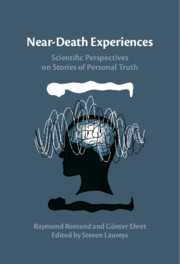Refine search
Actions for selected content:
3388064 results

Al-Ṭabarī
- A Medieval Muslim Historian and His Work
-
- Published by:
- Gerlach Books
- Published online:
- 30 August 2025
- Print publication:
- 31 January 2024

The Eye of the Beholder
- The Life of Muhammad as Viewed by the Early Muslims: A Textual Analysis
-
- Published by:
- Gerlach Books
- Published online:
- 30 August 2025
- Print publication:
- 31 January 2024

Der Orient - Fiktion oder Realität? / The Orient - Fiction or Reality?
- A Critical Analysis of Nineteenth Century German Travel Reports
-
- Published by:
- Gerlach Books
- Published online:
- 30 August 2025
- Print publication:
- 30 June 2015

Trial and Tribulation in the Qur'an
- A Mystical Theodicy
-
- Published by:
- Gerlach Books
- Published online:
- 30 August 2025
- Print publication:
- 30 September 2015

Between Bible and Qur'an
- The Children of Israel and the Islamic Self-Image
-
- Published by:
- Gerlach Books
- Published online:
- 30 August 2025
- Print publication:
- 31 January 2024

The Earliest Writings on the Life of Muḥammad
- The 'Urwa Corpus and the Non-Muslim Sources
-
- Published by:
- Gerlach Books
- Published online:
- 30 August 2025
- Print publication:
- 29 February 2024

In Search of Ali Ibn Abi Talib's Codex
- History and Traditions of the Earliest Copy of the Qur'an
-
- Published by:
- Gerlach Books
- Published online:
- 30 August 2025
- Print publication:
- 30 August 2018

Near-Death Experiences
- Scientific Perspectives on Stories of Personal Truth
-
- Published online:
- 30 August 2025
- Print publication:
- 04 September 2025

Ibn Aʿtham al-Kūfī and his Kitāb al-Futūh
- Author, Textual Tradition, and Ridda Narrative: New Edition of the Text on the Ridda
-
- Published by:
- Gerlach Books
- Published online:
- 30 August 2025
- Print publication:
- 31 March 2025

The Gulf States, Asia and the Indian Ocean
- Ensuring the Security of the Sea Lanes
-
- Published by:
- Gerlach Books
- Published online:
- 30 August 2025
- Print publication:
- 01 June 2018

The Christian Communities of Palestine from Byzantine to Islamic Rule
- An Historical and Archaeological Study
-
- Published by:
- Gerlach Books
- Published online:
- 30 August 2025
- Print publication:
- 31 January 2021

Security Dynamics of East Asia in the Gulf Region
-
- Published by:
- Gerlach Books
- Published online:
- 29 August 2025
- Print publication:
- 30 September 2014

Gulf Charities and Islamic Philanthropy in the 'Age of Terror' and Beyond
-
- Published by:
- Gerlach Books
- Published online:
- 29 August 2025
- Print publication:
- 30 March 2014

The Arabs and Islam in Late Antiquity
- A Critique of Approaches to Arabic Sources
-
- Published by:
- Gerlach Books
- Published online:
- 29 August 2025
- Print publication:
- 30 July 2014

European Muslims and their Foreign Policy Interests
- Identities and Loyalties
-
- Published by:
- Gerlach Books
- Published online:
- 29 August 2025
- Print publication:
- 30 August 2018

Political Economy of Energy Reform
- The Clean Energy-Fossil Fuel Balance in the Gulf States
-
- Published by:
- Gerlach Books
- Published online:
- 29 August 2025
- Print publication:
- 30 March 2014

Bahrain's Surviving Dynasty
- The Al Khalifa's Rulership Struggles and Successions 1783-1932
-
- Published by:
- Gerlach Books
- Published online:
- 29 August 2025
- Print publication:
- 30 June 2023

Egypt and the Gulf
- A Renewed Regional Policy Alliance
-
- Published by:
- Gerlach Books
- Published online:
- 29 August 2025
- Print publication:
- 30 September 2016

From Manners to Rules
- Advocating for Legalism in South Korea and Japan
-
- Published online:
- 29 August 2025
- Print publication:
- 07 August 2025

The Arms Trade, Military Services and the Security Market in the Gulf States
- Trends and Implications
-
- Published by:
- Gerlach Books
- Published online:
- 29 August 2025
- Print publication:
- 30 September 2016
